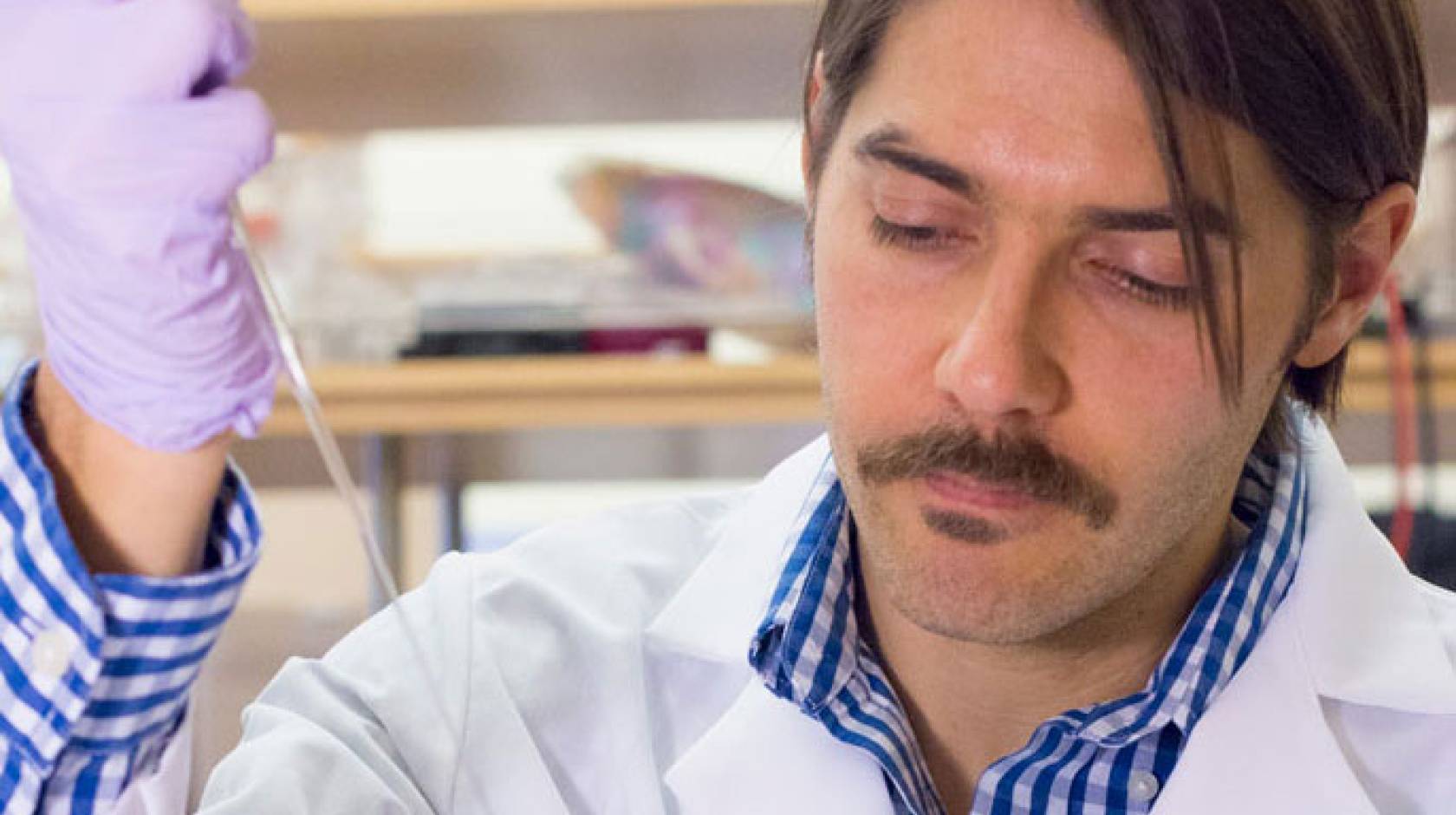Lorena Anderson, UC Merced

The National Cancer Institute’s “cancer moonshot” tasks researchers with, among advancing other new biotechnologies, delving into immunotherapy and epigenomic analysis.

Credit: UC Merced Systems Biology and Cancer Metabolism Laboratory
UC Merced professor Fabian V. Filipp is doing his part, further developing his work on precision targeting of cancers and personalized medicine.
Filipp has already mapped the genetic landscape of melanoma and found a drug that could be effective in battling the deadly skin cancer, and has now identified epigenetic master regulators that control cancer published today in Oncotarget, Cancer Metastasis Review, and Oxford Academic Press.
“The essence of precision medicine is to understand, which drug targets are effective given each person’s unique genetic and epigenetic makeup,” Filipp said.
What many people don’t know is that there is more to the genes than what we might see molecularly.
“There is a hidden layer of regulation controlling the activity of genes without changing the core code of our DNA. This field of study is called epigenetics,” he said.
Filipp’s approach to precision targeting shows that if researchers can regulate hormone receptors and epigenetic factors at the same time, they can control cancer.
“That’s why molecular understanding of epigenetic mechanisms underlying the development of cancer is of critical importance,” he said.
The 'yin and yang' of cancer

Credit: UC Merced Systems Biology and Cancer Metabolism Laboratory
According to latest genomic insights, researchers compare the delicate epigenomic homeostasis to yin and yang: Complementary forces keep each other in check. If one force overtakes the systems is out of equilibrium. For the cells this means either unlimited growth, cancer, or death. Without doubt, once we have a better understanding of epigenomic regulation, we can design drugs that counterregulate these factors.
Today, his research group published several research articles on precision targeting of therapy-resistant cancer, including cover studies in Oncotarget, Springer’s Cancer Metastasis Reviews, and Oxford’s Briefings in Functional Genomics, as well as recent work in Nature Publishing's Scientific Reports, Wiley’s Pigment Cell Melanoma Research on cancer epigenomics.
Filipp’s Systems Biology and Cancer Metabolism Lab in the School of Natural Sciences at UC Merced identified such an epigenetic factor, which the researchers named Jumonji because of its “magic and mysterious roles in cancer and cellular development.”

Credit: UC Merced Systems Biology and Cancer Metabolism Laboratory
“Epigenomic modifiers have the ability to modulate our genetic readouts — they can emphasize or silence genes,” Filipp said. “If an epigenomic modifier is dysregulated in cancer, it might switch on oncogenes (genes that in certain circumstances transform cells into tumor cells) or shut down tumor suppressors. Both events will transform cells into tumor cells. In addition to genomic changes, epigenomic changes also contribute to the ability of cancer cells to evade therapy.”
“We are all proud of professor Filipp’s accomplishments,” Vice Chancellor for Research Samuel Traina said. “He exemplifies the attributes of a great UC professor.”
In addition to prolific publishing, Filipp recently delivered guest lectures at the University of Maryland School of Medicine’s Greenbaume Cancer Center and the Pan-American Society for Pigment Cell Research’s conference entitled “Pigment Cells, Their Responses, and the Generation of Diversity” conference, both in Baltimore, where he chaired a session on melanoma metabolism. He also received several awards recently, including Pan-American Society for Pigment Cell Research’s Estela Medrano Young Investigator Award; the University of California Office of the President Cancer Research Coordinating Committee Award and the Margo F. Souza San Joaquin Valley Mentor Leadership Award.
In research science, Filipp is especially concerned with promoting advanced graduate training and student mentoring. Filipp has developed the first advanced training course on systems biology, cancer metabolism and metabolic flux analysis for graduate students in the Quantitative Systems Biology group at UC Merced, where he brought guest speakers from Europe. Last year, he promoted hands-on training in cancer systems biology for UC Merced undergraduates and Merced high school students, and plans to do the same this year.
“It is a special fulfilment to foster young careers and see our research talent grow in the Central Valley of California,” Filipp said.

